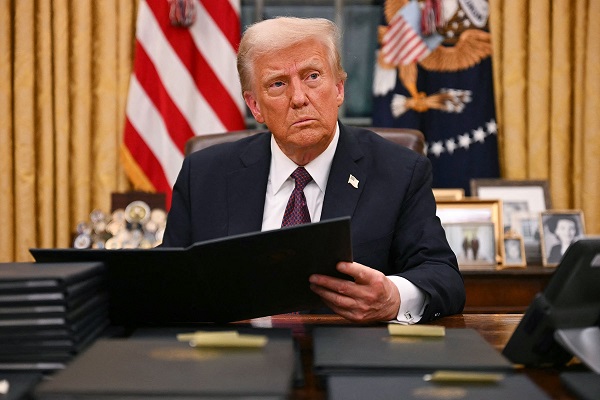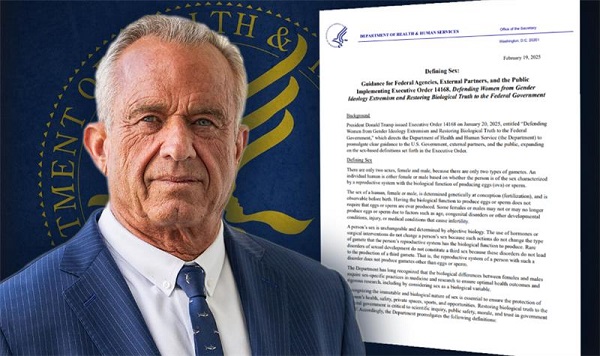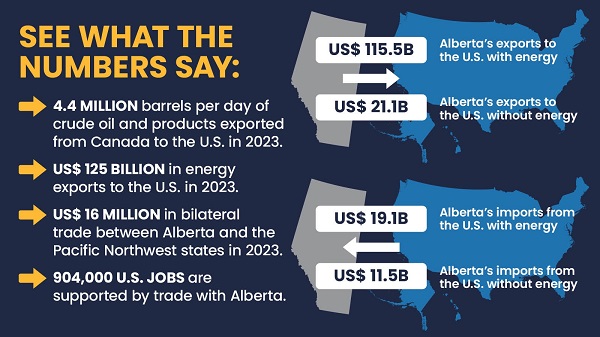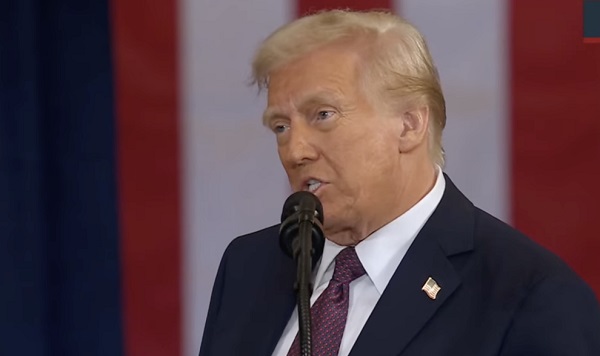Business
All politicians—no matter the party—should engage with natural resource industry

From the Fraser Institute
When federal Environment Minister Steven Guilbeault recently criticized Conservative Leader Pierre Poilievre for hosting a fundraiser that included an oil company executive, he raised an interesting question. How should our politicians—of all parties—engage with Canada’s natural resource sector and the industry leaders that drive our natural resource economy?
Consider a recent report by the Chamber of Commerce, entitled Canada’s Natural Wealth, which notes that Canada’s natural resources sector contributed $464 billion to Canada’s economy (measured by real GDP) and supported 3 million jobs in 2023. That represented 21 per cent of the national economy and 15 per cent of employment.
Within the natural resources sector, mining, oil and gas, and pipeline transmission represent 45 per cent of all GDP impact from the sector. Oil and gas production accounted for $71 billion in GDP in 2023. If you throw in the support sector for oil and gas production, and for manufacturing petroleum and coal products, that number reaches nearly $100 billion in GDP.
Shouldn’t any responsible leader want to regularly consult with industry leaders in the natural resource sector to determine how they can facilitate expansion of the sector’s contribution to Canada’s economy?
The Chamber also notes that the natural resource sector is a massive contributor to Canada’s balance of trade, reporting that last year the “sector generated $377 billion in exports, accounting for nearly 50% of Canada’s merchandise exports, and a $228 billion trade surplus (that is, exports over imports) —critical for offsetting trade deficits (more imports than exports) in other sectors.”
Again, shouldn’t all government leaders want to work with industry leaders to promote even more natural resource trade and exports?
The natural resource sector also accounts for one out of every seven jobs in Canada’s economy, and the wages offered in the natural resource sector are higher than the national average—annual wages in the sector were $25,000 above the national average in 2023. And workers in the sector are about 2.5 times more productive, meaning they contribute more to the economy compared to workers in other industries.
One more time—shouldn’t all of Canada’s political leaders, regardless of political stripe, want to work with natural resource producers to create more high-paying jobs for more Canadians?
Finally, the Chamber of Commerce report suggests that some environmental policies require swift reform. Proliferating regulations have made investing in Canada a “riskier and more costly proposition.” The report notes that carbon pricing, Clean Fuel Regulations, proposed Clean Electricity Regulations, proposed federal emissions cap and proposed methane regulations all deter investment in Canada. Which means less economic opportunity for many Canadian workers.
With so much of Canada’s economic prosperity at stake, it’s not improper—as Guilbeault and others suggest—for any politician to meet with and seek political support from Canada’s natural resource industry leaders. Indeed, to not meet with and listen to these leaders would be an act of economic recklessness and constitute imprudent leadership of the worst kind.
Author:
Business
DOJ drops Biden-era discrimination lawsuit against Elon Musk’s SpaceX

 MxM News
MxM News
Quick Hit:
The Justice Department has withdrawn a discrimination lawsuit against Elon Musk’s SpaceX that was filed during the Biden administration. The lawsuit accused SpaceX of discriminatory hiring practices against asylum seekers and refugees. The move follows ongoing cost-cutting measures led by Musk as the head of the Department of Government Efficiency under the 47th President Donald Trump’s administration.
Key Details:
-
The DOJ filed an unopposed motion in Texas federal court to lift a stay on the case, signaling its intent to formally dismiss the lawsuit.
-
The lawsuit, filed in 2023, alleged SpaceX required job applicants to be U.S. citizens or permanent residents, a restriction prosecutors argued was unlawful for many positions.
-
Elon Musk criticized the lawsuit as politically motivated, asserting that SpaceX was advised hiring non-permanent residents would violate international arms trafficking laws.
Diving Deeper:
The Justice Department, led by Attorney General Pam Bondi, has moved to drop the discrimination lawsuit against SpaceX, marking another reversal of Biden-era legal actions. The case, initiated in 2023, accused SpaceX of discriminating against asylum seekers and refugees by requiring job applicants to be U.S. citizens or permanent residents. Prosecutors claimed the hiring policy unlawfully discouraged qualified candidates from applying.
The DOJ’s decision to withdraw the case follows a judge’s earlier skepticism about the department’s authority to pursue the claims. No official reason for the withdrawal was provided, and neither Musk, SpaceX, nor the DOJ have issued public statements on the development.
Elon Musk was outspoken in his criticism of the lawsuit, labeling it as a politically motivated attack. Musk argued that SpaceX was repeatedly informed that hiring non-permanent residents would violate international arms trafficking laws, exposing the company to potential criminal penalties. He accused the Biden-era DOJ of weaponizing the case for political purposes.
The decision to drop the lawsuit coincides with Musk’s growing influence within the Trump administration, where he leads the Department of Government Efficiency (DOGE). Under his leadership, DOGE has implemented aggressive cost-cutting measures across federal agencies, including agencies that previously investigated SpaceX. The Federal Aviation Administration (FAA), which proposed fining SpaceX $633,000 for license violations in 2023, is currently under review by DOGE officials embedded within the agency.
Meanwhile, SpaceX’s regulatory challenges appear to be easing. A Texas-based environmental group recently dropped a separate lawsuit accusing the company of water pollution at its launch site near Brownsville. The withdrawal of the DOJ lawsuit signals a significant victory for Musk as he continues to navigate regulatory scrutiny while advancing his business ventures under the Trump administration.
Business
PepsiCo joins growing list of companies tweaking DEI policies

 MxM News
MxM News
Quick Hit:
PepsiCo is the latest major U.S. company to adjust its diversity, equity, and inclusion (DEI) policies as 47th President Donald Trump continues his campaign to end DEI practices across the federal government and private sector. The company is shifting away from workforce representation goals and repurposing its DEI leadership, signaling a broader trend among American corporations.
Key Details:
-
PepsiCo will end DEI workforce representation goals and transition its chief DEI officer to focus on associate engagement and leadership development.
-
The company is introducing a new “Inclusion for Growth” strategy as its five-year DEI plan concludes.
-
PepsiCo joins other corporations, including Target and Alphabet-owned Google, in reconsidering DEI policies following Trump’s call to end “illegal DEI discrimination and preferences.”
Diving Deeper:
PepsiCo has announced significant changes to its DEI initiatives, aligning with a growing movement among U.S. companies to revisit diversity policies amid political pressure. According to an internal memo, the snacks and beverages giant will no longer pursue DEI workforce representation goals. Instead, its chief DEI officer will transition to a broader role that focuses on associate engagement and leadership development. This shift is part of PepsiCo’s new “Inclusion for Growth” strategy, set to replace its expiring five-year DEI plan.
The company’s decision to reevaluate its DEI policies comes as President Donald Trump continues his push against DEI practices, urging private companies to eliminate what he calls “illegal DEI discrimination and preferences.” Trump has also directed federal agencies to terminate DEI programs and has warned that academic institutions could face federal funding cuts if they continue with such policies.
PepsiCo is not alone in its reassessment. Other major corporations, including Target and Google, have also modified or are considering changes to their DEI programs. This trend reflects a broader corporate response to the evolving political landscape surrounding DEI initiatives.
Additionally, PepsiCo is expanding its supplier base by broadening opportunities for all small businesses to participate, regardless of demographic categories. The company will also discontinue participation in single demographic category surveys, further signaling its shift in approach to DEI.
As companies like PepsiCo navigate these changes, the debate over the future of DEI in corporate America continues. With Trump leading a campaign against these practices, more companies may follow suit in reevaluating their DEI strategies.
-

 Bruce Dowbiggin2 days ago
Bruce Dowbiggin2 days agoWith Carney On Horizon This Is No Time For Poilievre To Soften His Message
-

 Media2 days ago
Media2 days agoMatt Walsh: CBS pushes dangerous free speech narrative, suggests it led to the Holocaust
-

 illegal immigration2 days ago
illegal immigration2 days agoTrump signs executive order cutting off taxpayer-funded benefits for illegal aliens
-

 COVID-192 days ago
COVID-192 days agoRed Deer Freedom Convoy protestor Pat King given 3 months of house arrest
-

 Health1 day ago
Health1 day agoTrump HHS officially declares only two sexes: ‘Back to science and common sense’
-

 Business1 day ago
Business1 day agoGovernment debt burden increasing across Canada
-

 Business1 day ago
Business1 day agoNew climate plan simply hides the costs to Canadians
-

 Censorship Industrial Complex1 day ago
Censorship Industrial Complex1 day agoBipartisan US Coalition Finally Tells Europe, and the FBI, to Shove It










